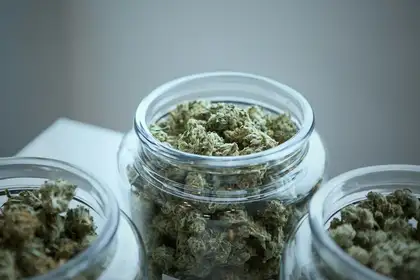
The Medicinal Cannabis Scheme was fully implemented in 2020.
The proportion of medicinal cannabis users who had a prescription for cannabis increased sharply from only 9 per cent in 2022/2023 to 37 per cent in 2024. One in four medicinal cannabis users said cannabis clinics and pharmacies were the “main source” of cannabis rather than the illegal market.
The NZDTS provides an annual snapshot of cannabis and other drug trends in Aotearoa New Zealand and surveyed over 10,000 people from February to July 2024. The Medicinal Cannabis Scheme was fully implemented in 2020 and since then the survey has asked participants about their engagement with the Scheme.
Associate Professor Marta Rychert from the SHORE & Whāriki Research Centre at Te Kunenga ki Pūrehuroa Massey University says, “We knew from official health statistics that prescriptions for medicinal cannabis products have been on the rise, but this survey just shows the extent of this trend and the impact on the illegal sourcing of cannabis by patients. The proportion of users who had a script quadrupled compared to the previous survey wave.”
The leading reasons to use cannabis medically were: mental health conditions (e.g., anxiety, depression), sleep issues and pain. Nearly half (42 per cent) of female medicinal cannabis users used it to help with symptoms of women’s health conditions such as endometriosis.
Although 60 per cent of medical cannabis users never asked a doctor for a prescription, this improved compared to the previous survey wave, when 85 per cent indicated they never asked.
The reasons medicinal cannabis users don’t request a prescription are also changing. Worry about the cost of legal products is now the leading reason people don’t use the Scheme, whereas in the past it was the concern that the doctor would not prescribe it. Perceptions of stigma have also decreased.
Dr Rychert says over time, GPs may have become more familiar with medicinal cannabis.
“But more likely the greatest impact on accessibility is from the private cannabis clinics that specialise in medical cannabis prescribing. Some cannabis clinics also operate their own dispensaries, and this way of access was more popular among NZDTS respondents than a traditional route via a pharmacy.”
“Prices of prescribed medicinal cannabis products have also fallen in the past year, and in many cases are comparable with the illegal market. Consumers’ perception of prices may change with more time,” she adds.

Associate Professor Marta Rychert.
The 2024 survey also asked respondents about their preferred policy response to recreational cannabis. A high proportion of respondents supported a strictly-regulated legal cannabis market, similar to the option proposed in the 2020 cannabis referendum, as well as decriminalisation. A minority of respondents supported the current approach of prohibition.
Dr Rychert says these results are not surprising given that NZDTS surveys people who currently use drugs, and who report high prevalence of cannabis use.
“The results also showed low support for a free, unregulated market for cannabis. This indicates people with experience of drug use prefer more moderate policy reform options that can address potential issues from commercialisation. When we looked at the results broken down by political party affiliation, we also found preference for moderate reform options across both liberal and conservative voters. It shows that people with different ideological views can still support similar types of reform.”
The NZDTS is conducted by the NZ Drugs Research Team at Massey’s SHORE & Whāriki Research Centre. The Team consists of Professor Chris Wilkins, Associate Professor Marta Rychert, Dr Robin van der Sanden, Dr Jose Romeo and Thomas Graydon-Guy.
Previous releases from the 2024 NZDTS survey covered illegal drug market trends and non-medical use of pharmaceuticals and can be accessed here.
Related news
One in four survey respondents used pharmaceuticals for recreational or non-medical reasons
The second set of findings from the 2024 New Zealand Drugs Trends Survey (NZDTS) sheds light on emerging trends in the non-medical use of pharmaceuticals and the therapeutic use of psychedelics.

Latest NZ Drug Trends Survey shows growing influence of digital and synthetic drug markets
The first findings from the 2024 New Zealand Drug Trends Survey (NZDTS) show a decline in the price of meth, increasing cocaine use and availability and an increased availability of psychedelics.

Rutherford Discovery Fellowship for public health researcher
Senior Research Officer at the SHORE & Whariki Research Centre, Dr Marta Rychert, has received a Rutherford Discovery Fellowship from the Royal Society Te Apārangi.
